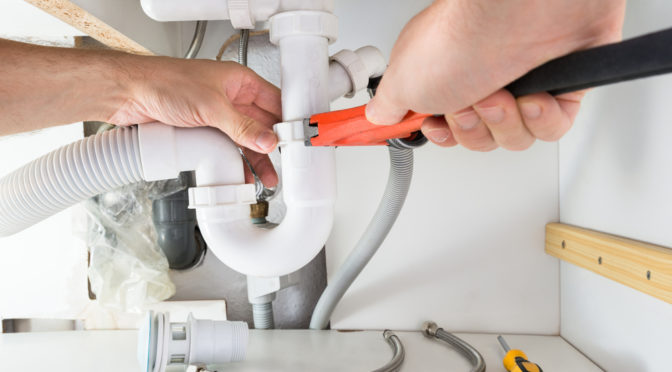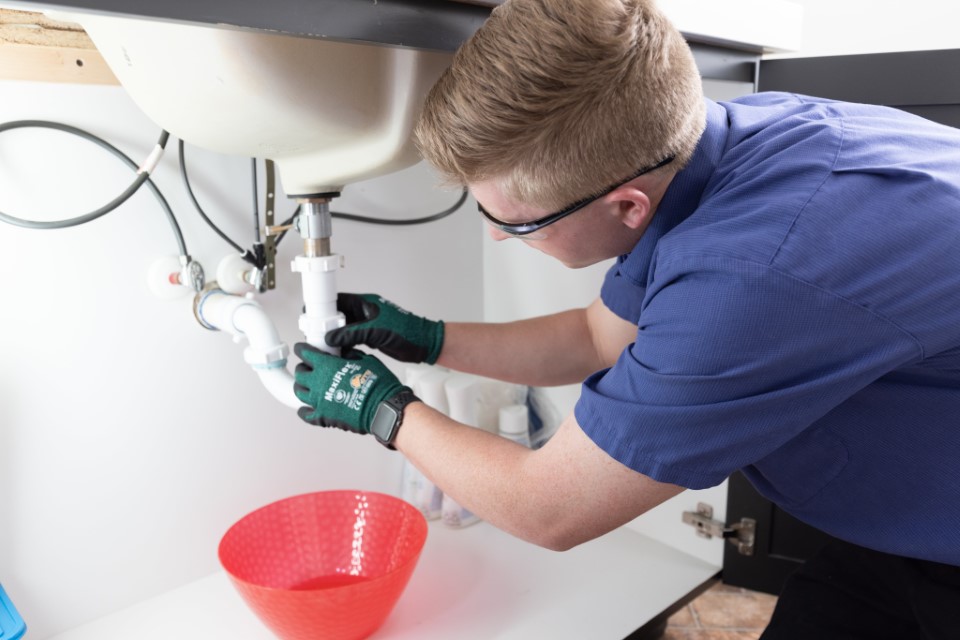Immediate Tips for Critical Situations Until Support Arrives
Immediate Tips for Critical Situations Until Support Arrives
Blog Article
Are you trying to locate information and facts around Expert Tips for Emergency Plumbing Repairs?

Plumbing emergencies can strike any time, triggering anxiety and prospective damage to your home. Whether it's a burst pipe, a clogged drainpipe, or a leaking faucet, knowing just how to take care of the circumstance until a specialist plumbing professional shows up can save you from more difficulties. This post offers important emergency situation pipes ideas to help you minimize damages and restore control during a pipes situation.
Shut off the Supply Of Water
The first step in any type of plumbing emergency is to shut down the water system. For localized problems, such as a leaking faucet or toilet, switch off the shutoff near the component. In the case of a major leakage or ruptured pipeline, find your home's main water shut-off shutoff and transform it off promptly. Understanding the place of these valves ahead of time can save important time during an emergency situation.
Address Little Leaks with Temporary Solutions
Little leaks can quickly come to be considerable problems if left unchecked. Utilize these short-term fixes till expert help gets here:
While these solutions aren't long-term, they can aid reduce water loss and damages.
Unclog Drains Safely
A clogged up drain can be an irritating and unpleasant problem. Below's how to tackle it:
If these approaches don't work, prevent making use of excessive force, as it might get worse the blockage.
Manage Overflowing Toilets
An overflowing bathroom can create prompt mayhem. Below's what you ought to do:
Shut Off Your Hot Water Heater
In particular emergencies, such as a ruptured pipeline, it's a good idea to turn off your hot water heater. This prevents overheating or damage to the device when water stops flowing. Shut off the power supply to the hot water heater (electric or gas) and let it cool off to stay clear of potential dangers.
Momentarily Quit a Burst Pipe
A ruptured pipeline can lead to considerable water damages in mins. To minimize the issue:
Call a specialist plumber instantly to attend to the issue permanently.
Manage Frozen Water Lines Meticulously
In cooler environments, icy pipes are a typical emergency situation. If you presume an icy pipe:
Prevent More Damages
Taking fast action to reduce damage can save you time and money in the long run. Right here's exactly how:
. Have an Emergency Pipes Set
Prepare a basic pipes emergency kit to deal with small problems effectively. Your set should consist of:
Having these tools accessible can make a considerable difference in your capability to manage emergencies.
Know When to Call a Professional.
While quick fixes can assist temporarily, particular plumbing concerns require prompt professional focus. Call a plumbing if:.
Promptly calling a specialist guarantees the concern is dealt with properly and prevents additional difficulties.
Conclusion.
Plumbing emergency situations can be overwhelming, however with the appropriate knowledge and tools, you can take care of the situation efficiently up until aid arrives. By shutting off the water system, addressing small leakages, and making use of temporary fixes, you can lessen damages and maintain your home safe. Remember, these suggestions are momentary remedies; always speak with a certified plumbing technician to take care of the root cause of the problem. Preparation and quick reasoning are your ideal allies in any kind of pipes emergency.
How to Manage a Plumbing Emergency Until Help Arrives
Plumbing emergencies can be stressful, but keeping calm can help minimize damage to your home. Below are steps to handle a plumbing emergency, but always call a plumber for assistance. It’s safest to have a 24/7 emergency plumbing team readily available, so keep their number in your contacts list for easy access.
Shut off the water: Act quickly to turn off the water source during an emergency. For toilets, turn the water valve at the base or behind the commode. For larger emergencies or flooding, turn the main valve in your home clockwise. Turn off the water heater: Prevent damage to your water heater by switching it off after shutting off the main valve. If you have a gas water heater, turn off the gas supply first. Must Open drains and spigots: Even after shutting off the main valve, your pipes may still have water. Reduce potential damage by turning on spigots outside your home and clearing water with the garden hose. Avoid using chemical cleaners during an emergency. Address small leaks: If you find a small leak, use the plumber’s tape or place rags and towels around the pipes to prevent further damage. Inform the plumbers about these leaks upon their arrival. Call for help: Remember to call a plumber as soon as the emergency occurs. An early call can provide initial assistance and help determine if the situation is too dangerous. If professionals or government officials advise you to leave your home during an emergency, listen and prioritize your safety. Plumbing Emergency Examples and Immediate Fixes
Dealing with a plumbing emergency can put enormous stress on homeowners, leaving them uncertain about the steps to take. This detailed guide delivers concise, direct advice for swiftly tackling typical plumbing dilemmas. It includes actionable measures for dealing with everything from burst pipes to toilets that won’t overflow, helping reduce harm and quickly bring back normalcy.
Burst Pipes
Burst pipes result from intense pressure from various causes like freezing temperatures, corrosion, or physical damage that leads to a pipe rupturing.
Solutions:
Immediately shut off the main water supply to halt the flow of water. Drain the remaining water in the system by opening all cold water taps to prevent further damage. For a temporary fix, use a pipe repair clamp or wrap a piece of rubber around the burst section and clamp it tightly with hose clamps. Call a plumber for a permanent fix. Severe Leaks in Faucets or Toilets
Solutions
Locate and close the local shut-off valve to stop the water flow to the leaking fixture. Place a bucket underneath to catch any drips and reduce damage. In the case of a toilet, lift the float in the tank to prevent more water from entering the bowl and turn off the water supply valve. Contact a plumber to address the problem correctly. Leaking Water Heater
Turn off the water supply to the leaking water heater. If it’s electric, switch off the power at the circuit breaker; if it’s gas-powered, turn off the gas valve. Avoid attempting to repair yourself, as this may involve significant danger and complexity. Seek the assistance of a professional plumber who can provide a safe and appropriate resolution. https://www.showtimeplumbingllc.co/expert-tips-for-managing-a-plumbing-emergency-until-help-arrives

I recently found that page on What to Do While Waiting for an Emergency Plumber when perusing the search engines. Sharing is nice. Helping people is fun. We cherish your readership.
Book Report this page